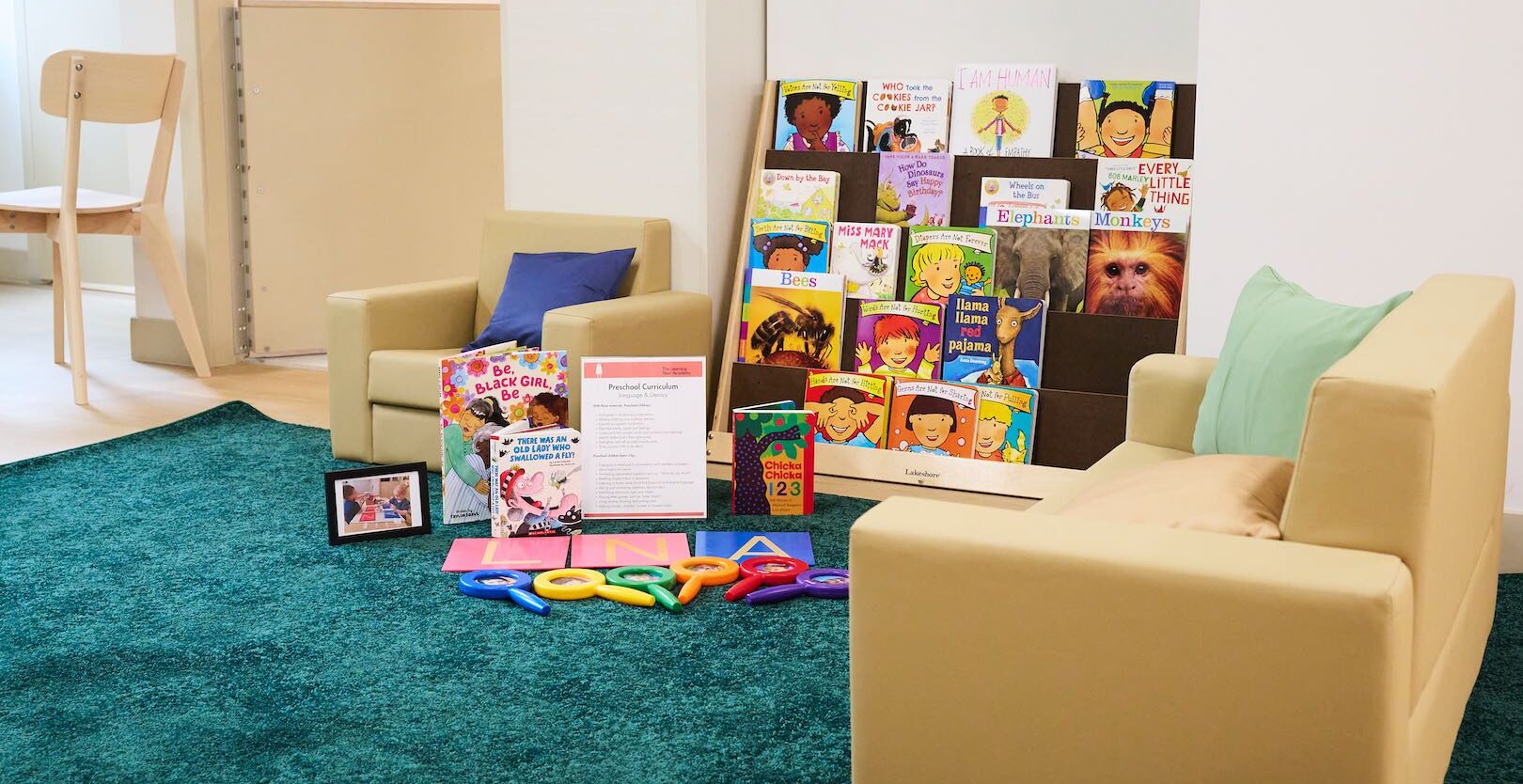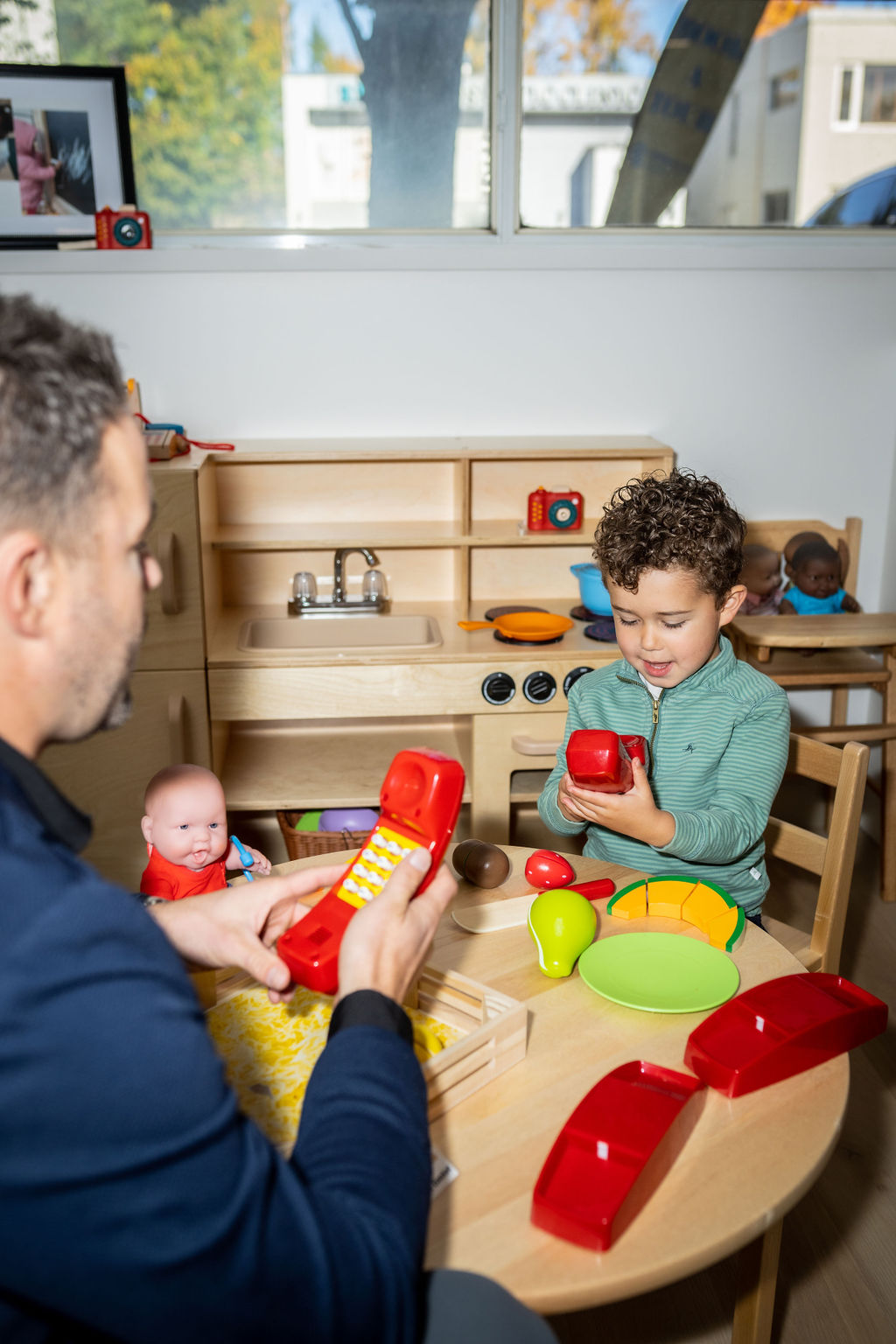Montessori literature refers to age-appropriate, reality-based books carefully selected to promote independent thinking, language development, and curiosity in young children. These books reflect the real world, helping children connect stories to their own experiences through simple, clear language and realistic illustrations. In educational settings like Montessori classrooms, this curated literature fosters empathy, expands vocabulary, and encourages lifelong engagement with reading by supporting a child-centred, hands-on approach to learning.
Understanding how Montessori literature works provides practical insights into how early exposure to the right stories supports essential learning skills. It’s about building foundational abilities, sparking curiosity, and nurturing a lifelong connection with learning.
Understanding Montessori Literature
Montessori education, developed by Dr. Maria Montessori, is based on the belief that children learn best through self-directed activity and hands-on engagement within a thoughtfully prepared environment. Montessori literature embodies these principles, offering texts that notably differ from many conventional children’s books:
- Child-Centred and Developmentally Appropriate: Books for a child’s evolving interests and cognitive levels, supporting gradual learning without overwhelming them.
- Rooted in Reality: Montessori literature emphasizes realistic content, focusing on nature, animals, geography, cultures, and everyday life. This helps children build concrete knowledge and connect meaningfully to their environment. Examples include a child helping in the kitchen, visiting a local farm, or observing seasonal changes.
- Clear and Precise Language: Straightforward and accurate vocabulary with simple sentence structures, aiding early language acquisition and comprehension. Every word serves a specific purpose, contributing to a larger vocabulary.
- Beautiful and Accurate Illustrations: Realistic and detailed visuals support visual literacy and the connection between words and real-world objects or actions.
- Respectful of Child’s Autonomy: Books are presented to encourage children’s self-selection, fostering intrinsic motivation and independent exploration.
By grounding narratives in tangible, relatable experiences, Montessori literature directly feeds a child’s natural curiosity about how the world works, laying a strong foundation for abstract ideas later on.
How Montessori Literature Supports Early Learning
Montessori literature is a strategic tool that that supports a multitude of early development areas.
1. Fostering Independent Thinking and Exploration
Montessori literature cultivates a child’s capacity for independent thought and discovery. By engaging with factual, real-world information, children develop observational skills and learn to ask questions, moving beyond passive absorption. This nurtures a mindset of self-directed learning.
- Choice and Ownership: Books are displayed on low, open shelves, inviting children to choose what interests them, which builds a sense of ownership over their learning.
- Encouraging Inquiry: Realistic content often inspires further investigation. For instance, a book about different types of trees might lead a child to observe trees outdoors, extending their learning beyond the pages.
- Relatable Problem-Solving: Some narratives present simple, realistic scenarios that encourage children to think about solutions or consequences within a context they understand.
This independent exploration strengthens decision-making skills and builds confidence in a child’s ability to learn. When children discover information themselves, it is often more meaningful and memorable.
2. Enhancing Language Development
Language is fundamental to human development, and Montessori literature is designed to support its acquisition and refinement. Exposure to clear, descriptive texts expands children’s vocabulary and improves their understanding of language structure.
- Vocabulary Expansion: Children absorb new words within meaningful contexts, aiding in accurate and systematic vocabulary growth.
- Structural Understanding: Consistent, clear sentence patterns help children grasp grammar and syntax.
- Phonetic Support: Many Montessori-aligned books are phonetically rich, using consistent phonetic patterns to aid early decoding and reading skills, supporting a strong phonetic approach to literacy.
- Stimulating Conversation: Narratives are structured to encourage dialogue, prompting children to ask questions and express their thoughts. Educators often use open-ended questions during storytime, such as “What do you think is happening here?” or “How do you think the character felt?”
3. Cultivating a Deep Interest in Learning
A profound impact of Montessori literature is its ability to instill a deep, abiding interest in learning.
- Intrinsic Motivation: When children read about real topics relevant to their experiences, they become deeply engaged, making learning a pleasurable and natural activity.
- Sense of Wonder: Realistic books about nature, science, and diverse cultures inspire awe and curiosity about the world, motivating children to learn more.
- Value of Knowledge: The thoughtful presentation of information in Montessori literature conveys a respect for knowledge itself, encouraging children to value accurate understanding.
- Focused Engagement: The simplicity and clarity encourage calm, focused engagement with the material, allowing children to concentrate effectively.
When children genuinely enjoy the process of discovery, they are more likely to seek out new knowledge throughout their lives. This aligns perfectly with a philosophy of creating environments where curiosity thrives and children are empowered to become lifelong learners.
4. Supporting Cultural Awareness and Empathy
Books introducing children to diverse cultures, traditions, and environments broaden their worldview and develop empathy. Stories about real people and situations help children understand emotions, relationships, and the broader human experience, aligning with Montessori’s emphasis on global citizenship and respect for all people.
5. Integrating with Hands-On Learning
Montessori education emphasizes “learning by doing.” Literature is often paired with practical activities to deepen understanding and retention. For instance, a book about plants might be followed by gardening activities, or a story about different foods could lead to a cooking lesson, linking abstract knowledge to concrete, hands-on exploration.
Montessori Literature in Practice at The Learning Nest
At The Learning Nest, Montessori literature enhances our learning environments at both North York and The Junction locations.
“At The Learning Nest, our approach is inspired by key Montessori principles- like child-led exploration, hands-on learning, and fostering independence. While we blend multiple proven curricula, Montessori’s focus on igniting a love for learning and purposeful environments plays a meaningful role in how we design our programs.”
– Melissa Capogna, North York Centre Director
- Accessible Book Shelves: Books are always placed within easy reach, inviting children to choose independently.
- Diverse Non-Fiction Selection: Our libraries offer a rich array of non-fiction books covering biology, geography, history, and practical life skills, all presented realistically and age-appropriately.
- Language-Rich Environment: Our educators use precise language, model clear communication, and engage children in conversations about the books they explore, reinforcing language development.
- Integration with Materials: Themes from our literature often complement our Montessori learning materials, providing a comprehensive and interconnected learning experience.
This integrated approach ensures literature is a fundamental part of a holistic learning journey, building strong foundations for reading, writing, and critical thinking.
Recommended Montessori-Friendly Books
Some popular Montessori-friendly books include:
- “Eating the Alphabet” by Lois Ehlert: A colourful introduction to letters through real fruits and vegetables.
- “The Very Hungry Caterpillar” by Eric Carle: Combines counting, days of the week, and life cycles with realistic illustrations.
- Non-fiction titles about animals, plants, and geography: Books that provide factual, detailed information with clear visuals.
- Books featuring diverse cultures and environments: To develop empathy and global awareness.
Choosing books that reflect reality and encourage observation supports Montessori principles and enriches children’s learning.
Making the Most of Literature at Home
Parents can easily incorporate Montessori literature principles into their home environment:
- Curate a Realistic Library: Fill your child’s bookshelf with books about real animals, nature, cultures, and everyday life, prioritizing realistic and detailed illustrations.
- Connect Books to Experiences: Extend learning by visiting places that bring book topics to life, such as local libraries, nature centers, or museums.
- Engage Actively: During reading time, ask open-ended questions and discuss the content to stimulate critical thinking and conversation.
- Follow Their Interests: If your child develops a fascination with a particular topic, seek out more realistic books on that subject. Allowing them to lead fosters deeper engagement.
- Ensure Accessibility: Keep books on low shelves where your child can easily reach and choose them independently.
Montessori literature doesn’t require special tools; just thoughtful choices and meaningful engagement can create a supportive and enriching atmosphere at home.
Ready to Nurture Your Child’s Love for Learning?
Montessori literature is a powerful educational tool that supports independent thinking, language development, and curiosity, which aligns perfectly with the principles of The Learning Nest.
Our educators create a warm, supportive atmosphere and thoughtfully designed environments that encourage children to explore, grow, and thrive. Our programs blend Montessori-inspired principles with social-based learning, supporting your child’s full potential from the very beginning, at our premium daycare centres in North York and The Junction.
If you’re interested in learning more about our approach or how we can support your child’s unique learning journey, we invite you to reach out. Our team is here for your family’s journey.
Contact us today to schedule a visit or speak with one of our team members






